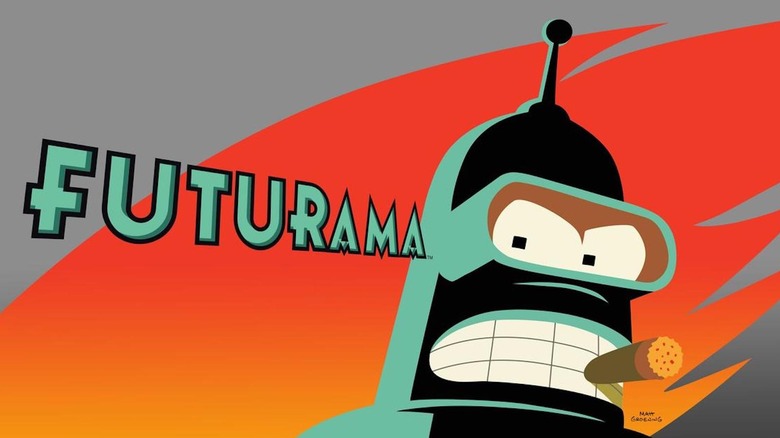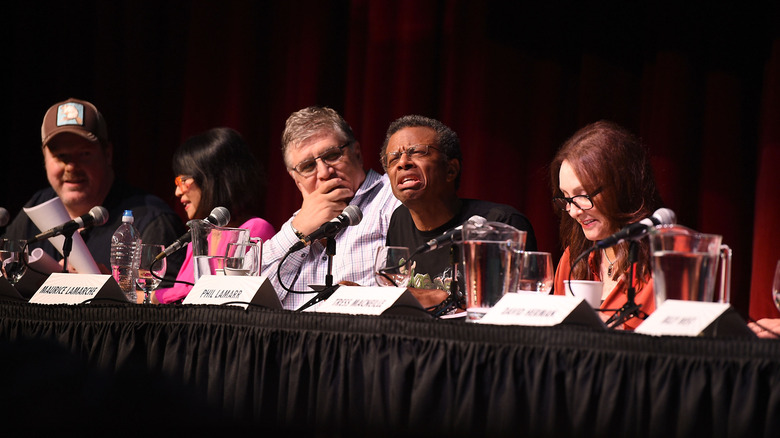It's Official: There's Only One Bender
News of Futurama's Hulu revival excited a number of series fans, but the sentiment changed when the voice of Bender "Bending" Rodriguez himself, John DiMaggio, expressed his dissatisfaction with both the project negotiations and the way the industry as a whole treats its talent. For a time it was uncertain if he would officially join the returning cast or not, and with the production already making it clear that it would find a new voice if the situation called for it fans began to worry.
"Negotiations are a natural part of working in showbusiness," DiMaggio said in his original statement on Twitter, "Bender is part of my soul & nothing about this is meant to be disrespectful to the fans or my 'Futurama' family." He also clarified that he doesn't just believe he should be paid more, but that the entire returning cast should as well — because he believes the industry is taking advantage of its artists.
Well, obligatory "good news, everyone!" reference: Deadline has revealed (and DiMaggio himself has confirmed) that Bender — the real Bender — is indeed back, baby!
They're all back, really
With DiMaggio onboard, pretty much the entire principal cast from the earlier run (well, technically "runs" of the show is present and accounted for. Fry, Leela, Hermes, Professor Farnsworth, Mom, a metric boatload of supporting cast (because there's some remarkable range in this lineup), and, of course, Bender the Offender himself.
Assuming the Hulu revival releases in 2023, as initially projected, it will have been about 10 years since the series' final episode aired in September, 2013. If prior "Futurama" hiatuses are any indication, the new series likely won't miss a beat. It may even work the time jump into its own plot.
The terms of DiMaggio's agreement have not been made public, but Deadline's sources say that it was an amicable decision. It's also unclear if the negotiations have had an impact on any of the other actors' contracts, or what it could mean for future voice actors. Regardless, hopefully it opens the way for stronger bargaining positions and better contract negotiations for artists in the future.

